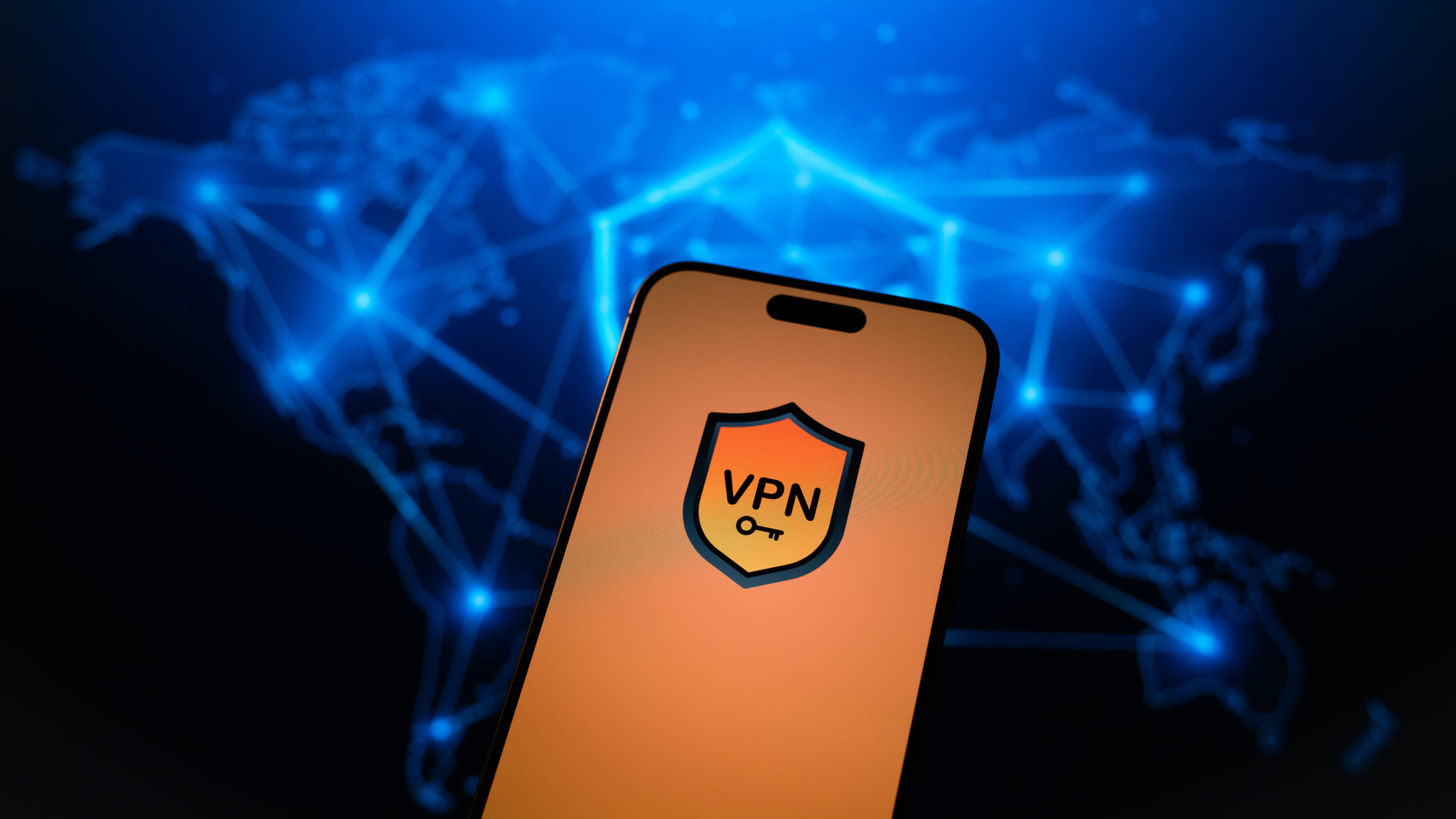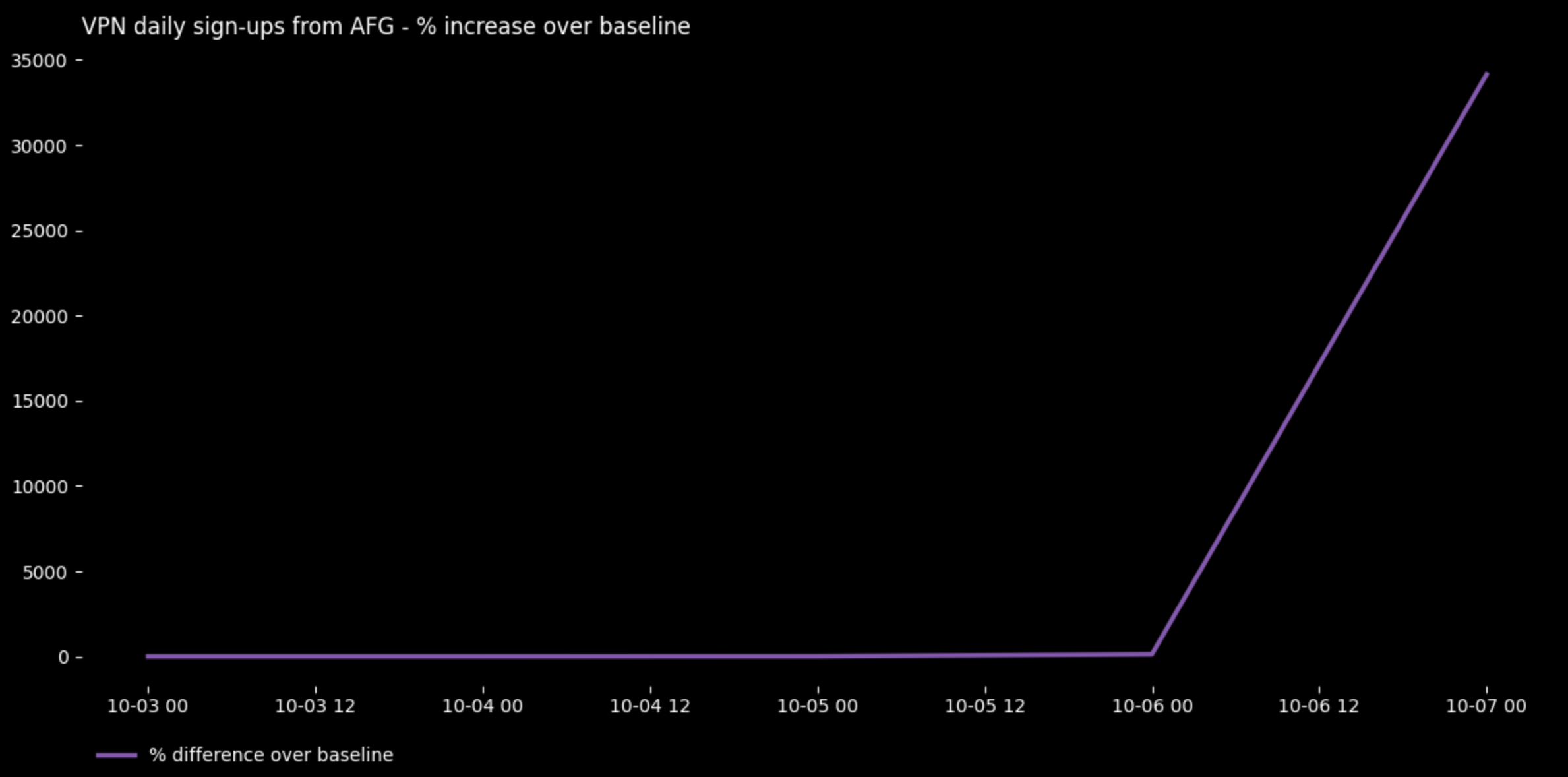VPN usage up 35,000% in Afghanistan as authorities restrict access to social media – here's what we know
Proton VPN recorded spikes in usage of +35,000% above baseline

Sign up for breaking news, reviews, opinion, top tech deals, and more.
You are now subscribed
Your newsletter sign-up was successful
- Social media restrictions imposed in Afghanistan on October 7 have led many to turn to VPNs
- Proton VPN recorded spikes in usage of +35,000% above baseline
- The social media ban follows a 48-hour complete internet shutdown on September 29, 2025
Afghans have been turning to VPN services en masse since last Tuesday, October 7, when authorities began restricting access to popular social media platforms.
Proton VPN, a popular free VPN, experienced spikes in usage of +35,000% above baseline. Researchers at Top10VPN have recorded an increase in VPN demand of 574% so far compared to the daily average over the 28 days prior.
Talking to the BBC, Taliban government sources confirmed that some social media content has been restricted, without giving any formal explanation.
While it isn't clear which type of posts are subject to these restrictions, the source said that the filtering is "almost applied for the whole county, and most provinces are covered now."
Yet, as per data collected by the internet watchdog NetBlocks, access to Instagram, Facebook, X, TikTok, and Snapchat is completely restricted on multiple providers across the country. Additionally, NetBlocks reported some regional, curfew-style internet shutdowns in Kandahar.
There is no indication that the social media disruptions have been lifted at the time of writing.
The social media block comes only a week after the Taliban government completely shut down the internet and telephone services for 48 hours as a way to "prevent immorality." In that instance, not even the best VPN apps had been able to help citizens stay online.
How a VPN can help

A virtual private network (VPN) encrypts internet connections while spoofing users' IP addresses.
The latter skill is exactly what's needed to bypass restrictions like those in place in Afghanistan right now.
You can connect to a VPN server based outside of Afghanistan (and any other country enforcing similar restrictions) to trick the local internet service provider (ISP) into granting access to censored sites.
In 2025 alone, Proton VPN has recorded spikes in VPN usage 25 times so far, with most of these incidents linked to government-imposed restrictions on certain apps during times of political turmoil or on child safety grounds.
In Nepal, for example, a 5-day social media ban provoked an over 8,000% spike in VPN sign-ups in September. This occurred on the same week that Turkey enforced a 24-hour blockade on all major social media apps.
At the time of writing, Proton is also registering high VPN usage from Cameroon as the country is waiting for the election results after Sunday's voting. People in Jordan have been turning to Proton VPN since October 8, too, as authorities banned Discord.
While Proton VPN Free is among the most secure freebies out there, alongside Privado VPN Free and Windscribe Free, I recommend checking our best cheap VPN guide if you wish to get premium protection at a fraction of the price.
You might also like

Chiara is a multimedia journalist committed to covering stories to help promote the rights and denounce the abuses of the digital side of life – wherever cybersecurity, markets, and politics tangle up. She believes an open, uncensored, and private internet is a basic human need and wants to use her knowledge of VPNs to help readers take back control. She writes news, interviews, and analysis on data privacy, online censorship, digital rights, tech policies, and security software, with a special focus on VPNs, for TechRadar and TechRadar Pro. Got a story, tip-off, or something tech-interesting to say? Reach out to chiara.castro@futurenet.com
You must confirm your public display name before commenting
Please logout and then login again, you will then be prompted to enter your display name.